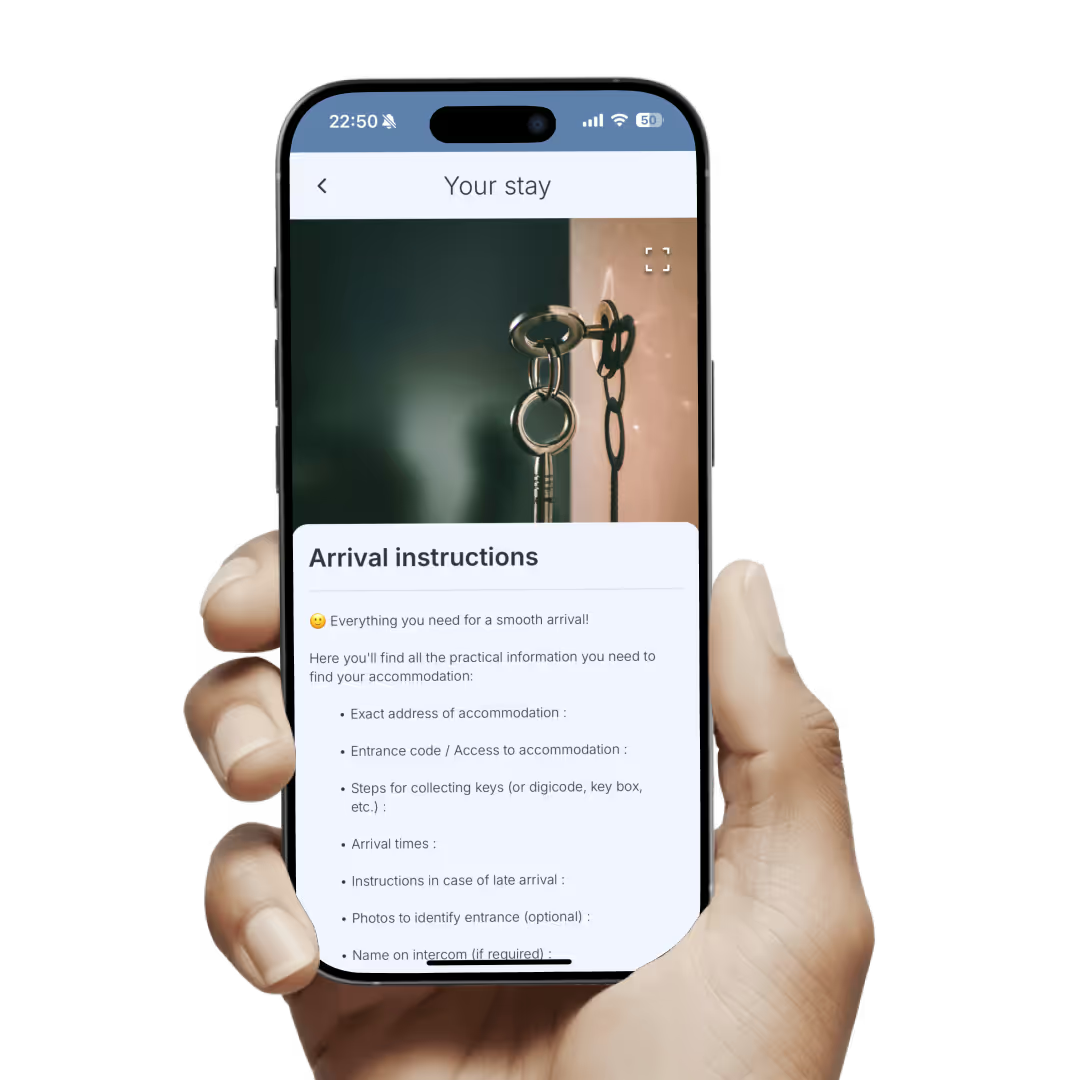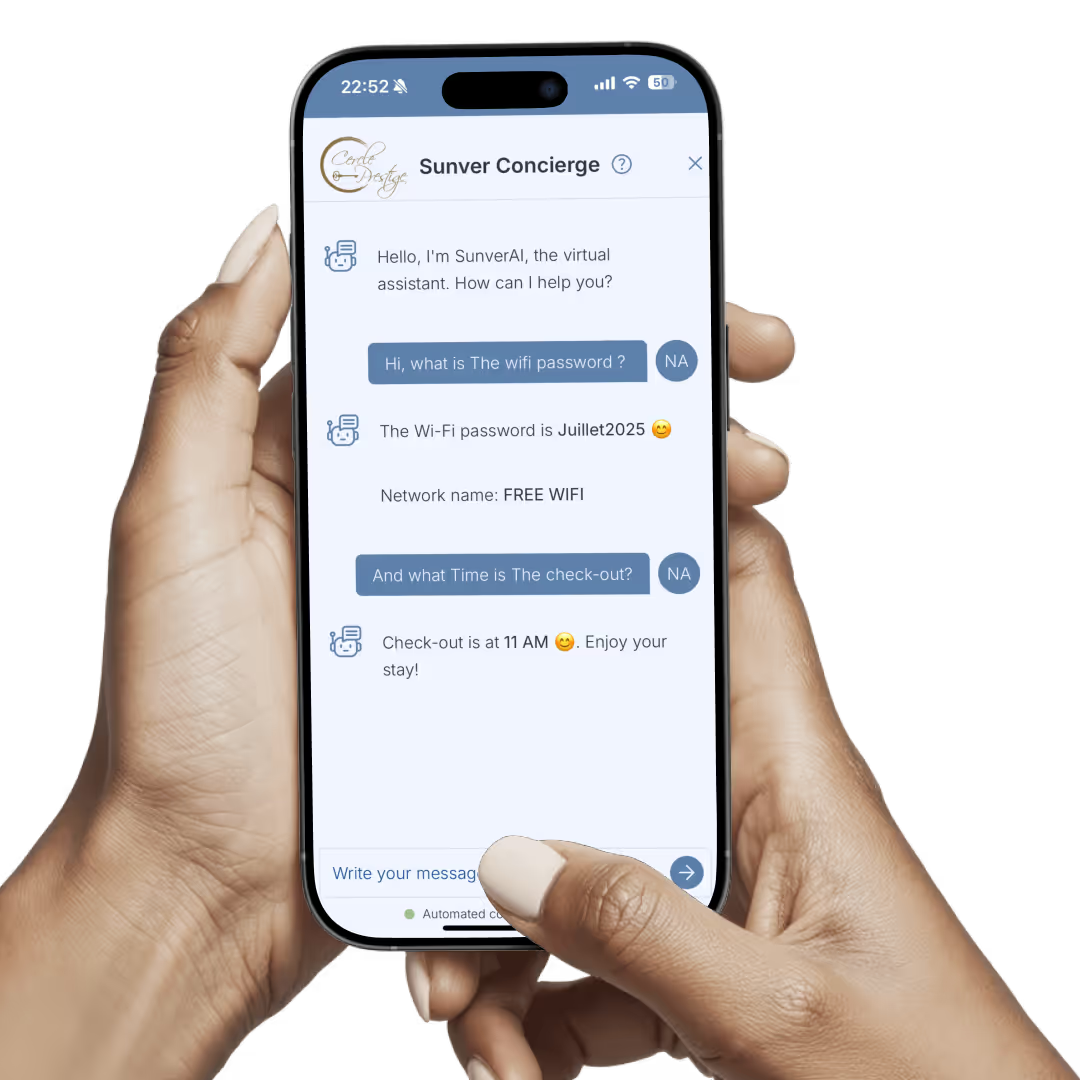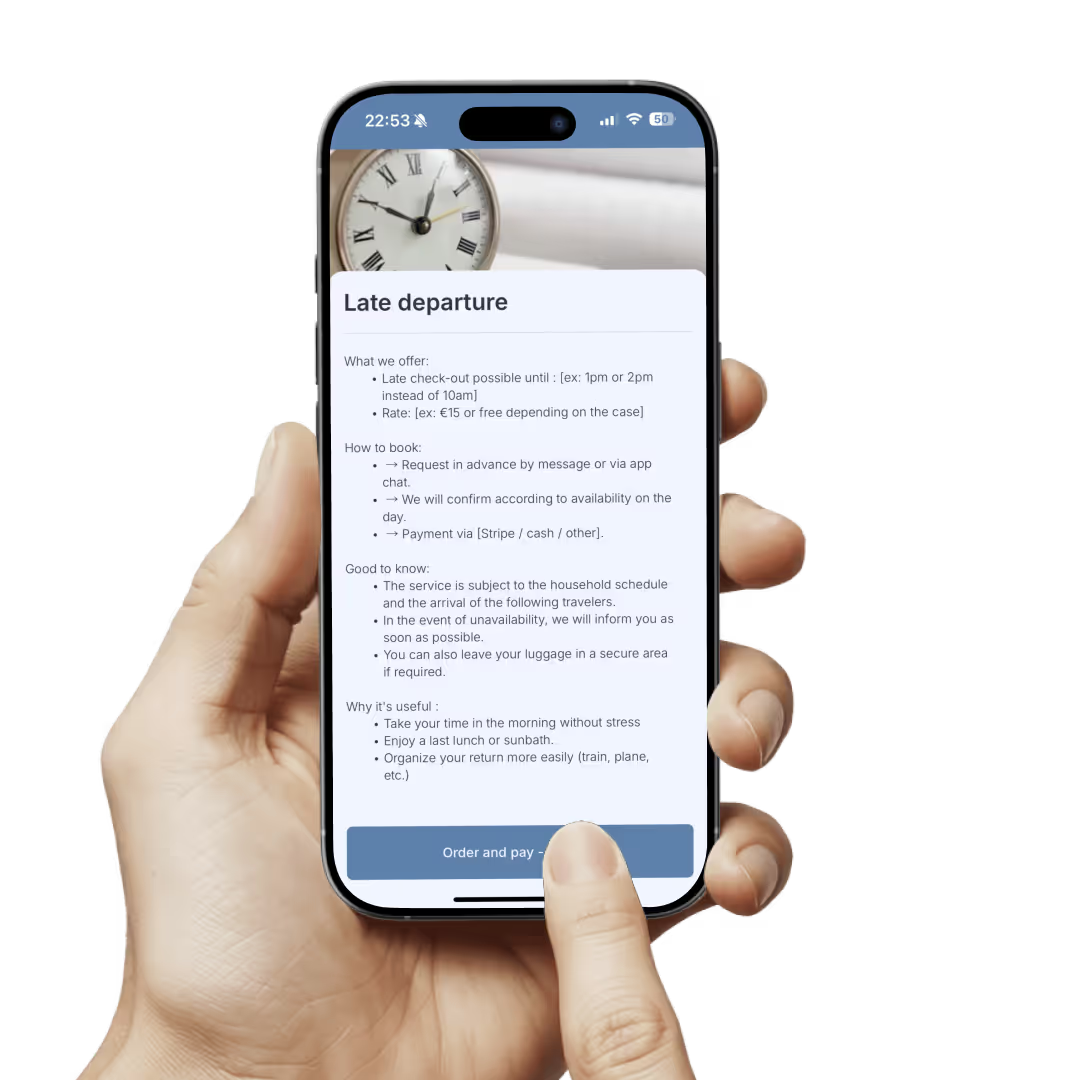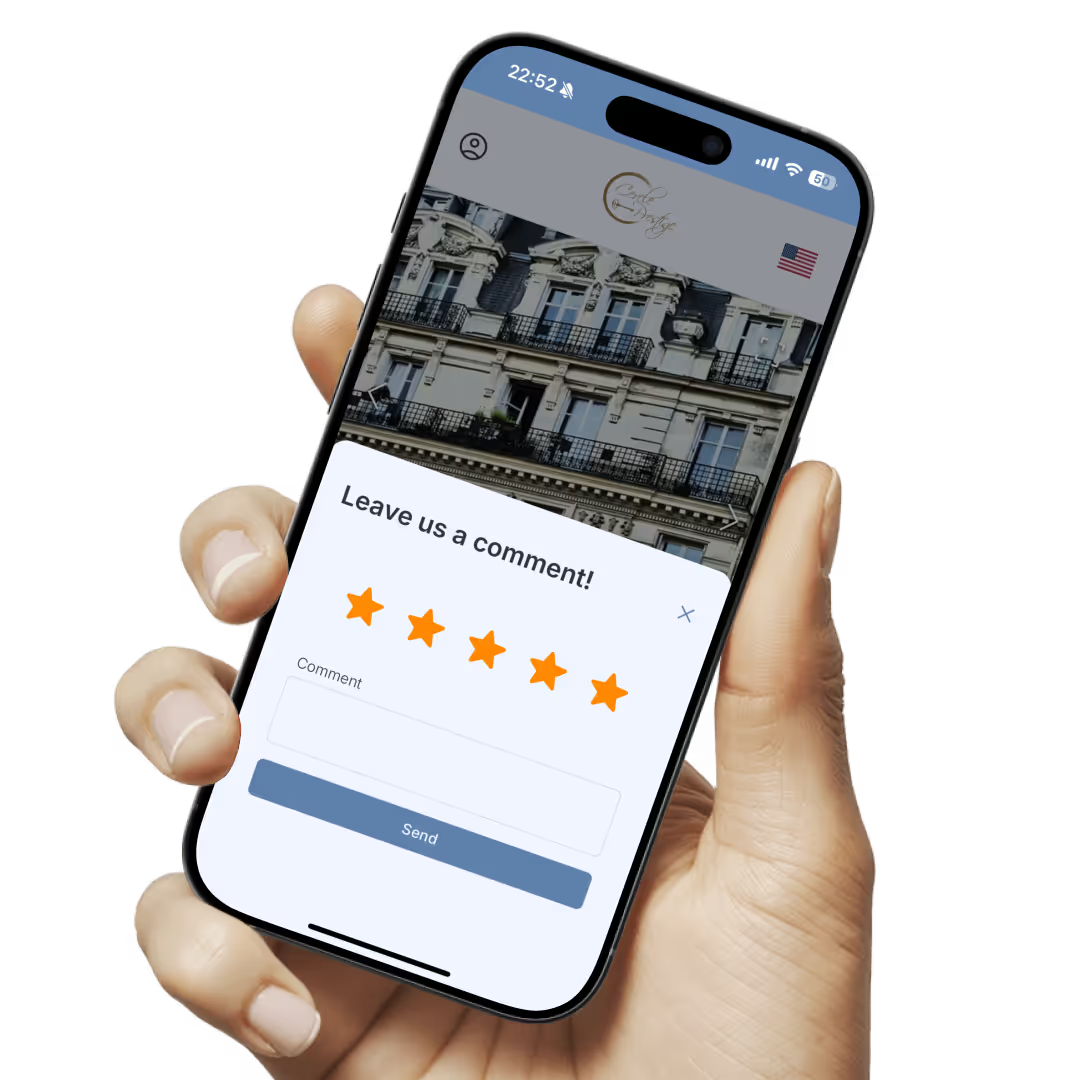AI Chatbots in Short-Term Rentals: How Artificial Intelligence Is Transforming Guest Communication
AI chatbots answer questions instantly, automate repetitive exchanges, and support upselling, all while speaking the guest’s language.

AI Chatbots in Short-Term Rentals: How Artificial Intelligence Is Transforming Guest Communication
Artificial Intelligence (AI) has become increasingly present across the hospitality industry.
Among its most practical applications, AI chatbots stand out as tools capable of instantly answering guest questions, automating daily interactions, and improving overall service quality.
What Is an AI Chatbot in Short-Term Rentals?
An AI chatbot in short-term rentals is a tool that can understand and automatically respond to guest messages using existing data.
Unlike a simple bot with preprogrammed replies, it can analyze context, learn from past interactions, and adapt to each traveler’s needs.
In the hospitality sector, AI chatbots are mainly used to:
- Answer common questions (Wi-Fi, check-in, house rules, equipment)
- Manage bookings and upsells
- Automatically translate conversations into the guest’s language
- Provide 24/7 assistance, even outside reception hours
Smoother Communication, Available 24/7
Guests expect fast and accurate answers at any time of day.
An AI chatbot helps reduce repetitive messages while maintaining a constant level of responsiveness.
Typical results include:
- Up to 70% of guest questions handled automatically
- Response times reduced from hours to seconds
- Continuous availability, regardless of time zones
This responsiveness directly contributes to higher guest satisfaction and reinforces a professional image for the property.
A Driver for Upselling Opportunities
Beyond communication, AI chatbots act as real sales assistants.
They can promote relevant services at the right time, such as:
- Late check-out or early check-in
- Mid-stay cleaning
- Airport transfers
- Local activity bookings
By integrating a secure payment system (such as Stripe), these services can be booked and paid for directly through the chatbot, simplifying the experience for guests while increasing revenue per stay.
A Multilingual and Personalized Experience
With automatic translation, AI chatbots can now communicate in the guest’s language.
Whether the traveler speaks Spanish, German, or Chinese, the exchange remains smooth and barrier-free.
Some models go further, adjusting tone and vocabulary based on the traveler’s profile (family, business, couple…).
This linguistic and contextual personalization enhances the sense of welcome and the overall guest experience.
A Complementary Tool, Not a Human Replacement
Contrary to common misconceptions, AI chatbots don’t replace humans, they support them.
By handling simple and repetitive requests, they allow teams to focus on high-value interactions such as welcoming guests, building loyalty, or managing complex situations.
In this sense, AI acts as a digital teammate, ensuring consistent, responsive, and efficient communication.
Conclusion
AI chatbots have become a key tool for modernizing guest communication in hotels and short-term rentals.
They improve responsiveness, reduce operational workload, and open up new revenue opportunities.
As technology continues to advance, their integration into digital welcome books and property management platforms is becoming a standard for providing a smooth, multilingual, and connected guest experience.
Much more than a welcome guidebook
A web application accessible without download, via QR code or link, automatically translated into your guest’s language.




Frequently asked questions
Everything you need to know about Sunver.
What is Sunver?
Sunver is a solution that allows you to easily create your own digital welcome guidebook to simplify communication with your guests. It enhances the guest experience, saves you time every day, and helps you generate additional revenue. Setting up a guidebook is intuitive—similar to creating a Facebook profile.
How do I set up Sunver?
You can create your first guidebook directly from our website in just a few minutes and experience the simplicity of the solution for yourself. If you are a hospitality professional, our team also offers a full demo via video call, helping you with setup and customization.
How can I share my guidebook with guests?
There are two main ways to share your guidebook:
1. Send the link directly after booking or during the stay through your automated messages.Provide
2. QR code displays inside your accommodation so guests can scan and access the guidebook instantly.
You can also print your display for free from your Sunver dashboard or order physical QR code supports directly from our website.
Do my guests need to download anything?
No, your guests don’t need to download anything. Sunver runs as a web app, meaning it’s hosted online, loads quickly, and is instantly accessible. Thanks to automatic translation, the guidebook will open directly in the guest’s phone language.
Can I promote my additional services with Sunver?
Yes, absolutely. With the guidebook modules, you can create a true digital shop and showcase your services, products, or exclusive offers. By connecting your Stripe account, you can accept payments directly without any commission taken by Sunver. Guests can pay in just one click from their smartphone.
The digital welcome guide your guests deserve
Give your guests a seamless experience — all your information, services, and recommendations, right at their fingertips.
